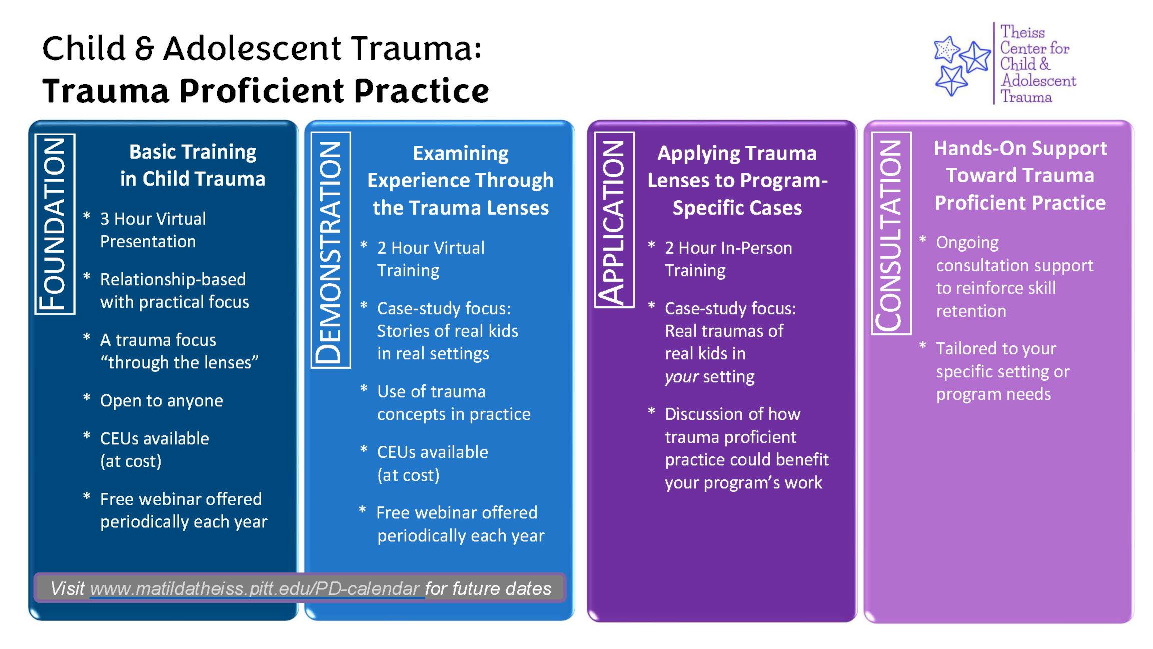To support the provision of services to children and adolescents with trauma histories across the UPMC Western Behavioral Health network, a curriculum was developed that allows for each clinic specialty and location to establish a trauma treatment framework that meets the specific needs of the population served.
This curriculum has evolved into a multi-step Trauma Proficient Practice Series designed for all professionals who work directly with individual children and their families, whether in a clinical setting or elsewhere. The Trauma Proficient Practice Series establishes a baseline level training for child and adolescent programs to become trauma informed. From there, each professional or agency can move along the ladder to more intensive training, depending on their specific needs.

